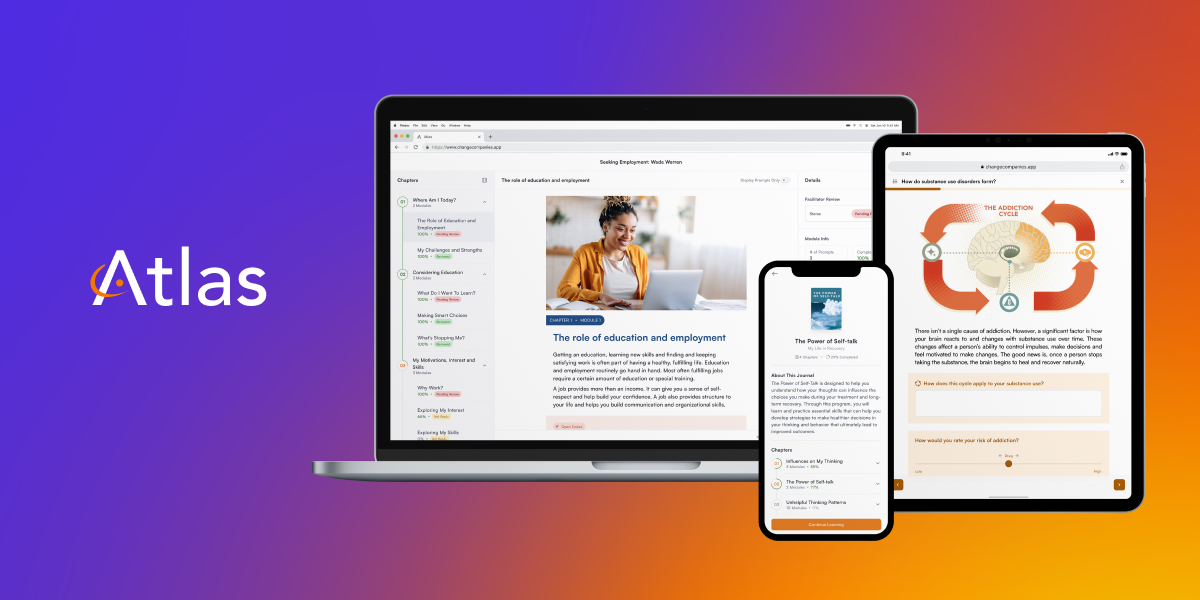Tailored supervision with Atlas: Meeting client needs in real time

Digital tools like Atlas from The Change Companies can help link assessment to action. In simple terms, staff can input a person’s primary criminogenic needs and get recommendations for relevant evidence-based content.
In addition to client-facing interventions, Atlas offers staff a facilitator dashboard that monitors progress, engagement and activity, creating opportunities for meaningful discussion in supervision meetings. Instead of the officer simply asking “Have you stayed out of trouble since we last met?” the conversation can be, “Now that you’ve taken some time to think about your negative influences, let’s talk about how you plan on handling peer pressure next weekend.” The supervision experience shifts from paperwork and box-checking to a more interactive, coaching-oriented dynamic.
Before Atlas:
- Officer Smith supervises John, who has a moderate risk score with high needs in substance use and peer relationships.
- Officer Smith refers John to a generic “outpatient counseling” group that all clients with any substance history attend. The curriculum is fixed and may or may not address peer relationships or John’s specific triggers.
- Officer Smith is busy and assumes the program will handle things. After a few months, John’s drug tests are still coming up positive. Smith, strapped for time, only increases surveillance — scheduling more meetings and reminding John of rules — but provides no new interventions and is not sure where to go from here.
After Atlas:
- Officer Smith uses Atlas when supervising John. After inputting John’s primary risk areas of “substance use” and “peer relationships,” Atlas suggests a couple of tailored activities designed to address John’s needs.
- John completes his Atlas assignments during breaks at work. Next week, Smith reads a summary of John’s progress along with some recommended discussion prompts. Smith uses these insights to discuss John’s challenges with him and work toward meaningful solutions
- Smith still uses her professional judgment — for instance, she decides not to assign too much at once so as not to overwhelm John — but Atlas provides her with a menu of targeted options that she can deploy instantly. Over time, as John’s needs change, Smith updates the Atlas inputs and the recommendations adjust accordingly.

Evidence-based, behavioral health Interactive Journaling® curricula are available digitally on Atlas. Atlas can save staff time while supporting fidelity to evidence-based practices.
Ready to see what Atlas can do for your program? Visit our website to schedule a personalized demo today. Learn more about Atlas →
Provide your information below for a complete overview of Atlas for your setting.


